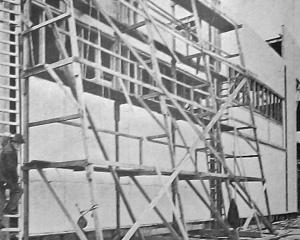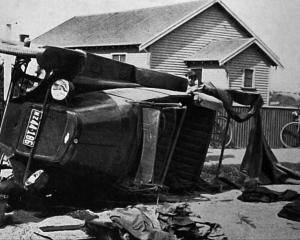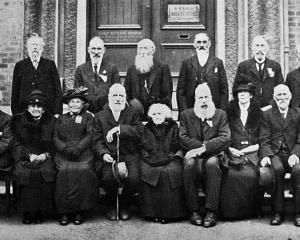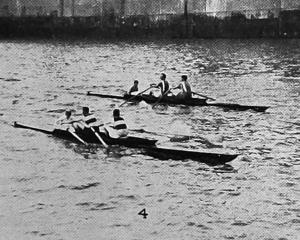On two occasions this week our visitor was robbed of small sums in cash whilst he was bathing, and, on making a complaint, he discovered another gentleman who had to recount a similar experience.
• Arising out of a recent inquest in which the near relatives of an old man were a little reluctant, not from lack of affection, but from sheer dread of the expense, to undertake the cost of his burial, the Christchurch Coroner, Mr H. W. Bishop, S.M., has expressed the view that a reform of the practice of funerals is urgently needed.
The average funeral, Mr Bishop points out, is a somewhat expensive affair, and its standard is maintained by the habit of the rich and middle class of giving unnecessarily extravagant and expensive burials.
The poorer people do not wish to appear lacking, and so endeavour to rise to a standard set by those better able to afford it.
The outcome of this is that they incur debt. To remedy this state of affairs two courses of action could be pursued.
The first would be an appeal to the richer classes to adopt a plainer type of funeral; the second would be more radical and go to the root of the trouble.
It would consist of the establishment of a municipal crematorium, where the last offices for the dead could be performed at a minimum of expense.
• During the holiday season numbers of houses in the city are empty, the owners being at the seaside, and this is a chance for burglars to pursue their calling unmolested (telegraphs the Wellington correspondent of the Christchurch Press).
A resident of Kelburn returned the other day to find that his house had been visited by someone who was not on the visitors' list, and he decided to remain in the house in case a second visit was made.
In the dark hours of the night he was awakened by a noise at the back door and, being guided by the flash of a bullseye lantern at the keyhole, he opened the door suddenly and let out a hefty right, catching the intruder fair on the right eye and sending him and his lantern spinning across the yard.
There was a howl of rage and indignation, and the householder received a shock when he discovered that he had assaulted a burly policeman who was doing his duty by the absent householders.
• An interesting decision, bearing on discriminations practised against the negro, has just been rendered by the Supreme Court of the United States.
This court has, on several occasions, sustained the constitutionality of State Laws, permitting rail-way companies to furnish separate coaches for white people and coloured people.
But the State of Oklahoma passed a law forbidding railway companies from furnishing sleeping or dining car accommodation to any but those of the white race.
Five negroes appealed to the courts and a few days ago the highest court of the nation found the law to be unconstitutional.
However, owing to a defect in the position, no decree to this effect could be made, and it will be necessary to start the proceedings all over again. - ODT 8.1.1915.












